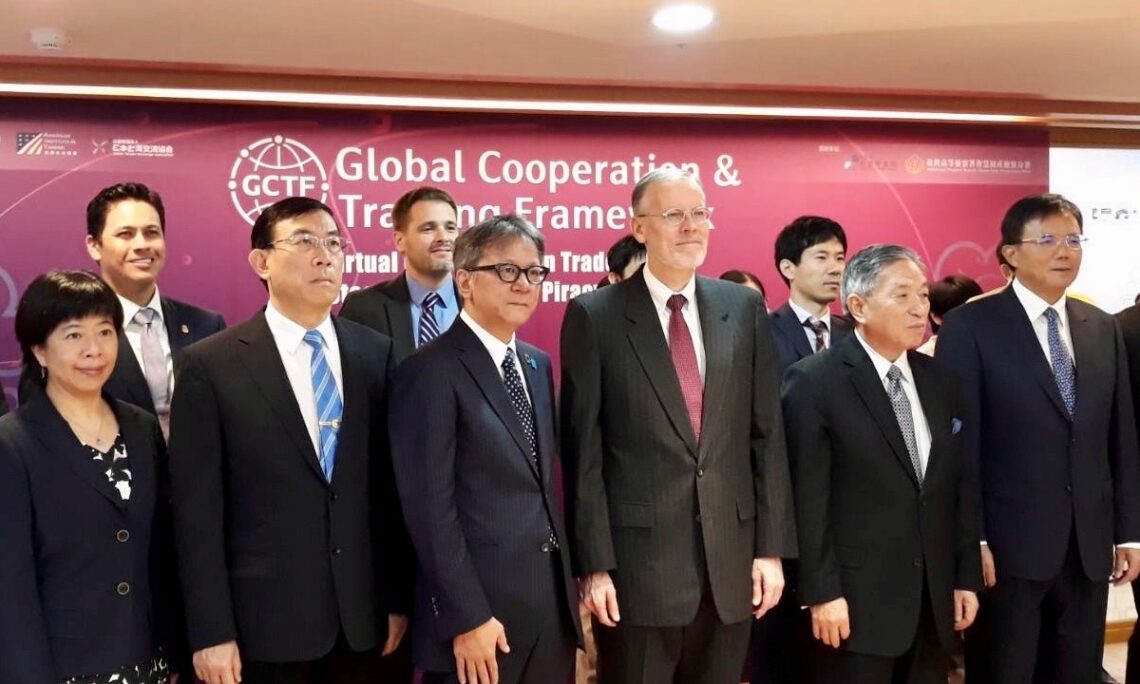OT-2042
October 15, 2020
Remarks by AIT Director W. Brent Christensen at Virtual Global Cooperation and Training Framework (vGCTF)
on Trade Secrets Protection and Digital Piracy Prevention
October 15, 2020
(as prepared for delivery)
Deputy Minister Tien, Deputy Minister Tsai, Deputy Representative Yokochi, distinguished panelists and audience members, it is my pleasure to welcome you to this workshop on trade secrets protection and digital piracy prevention held under the Global Cooperation and Training Framework or GCTF.
AIT has a long history of positive cooperation with Taiwan on the promotion of intellectual property rights, making this an ideal topic for a GCTF workshop. Taiwan’s progress in this area is quite remarkable, and we believe that Taiwan, Japan, and the United States each have tremendous knowledge and experience to share today. We know that the range of development on IPR protection represented among the audience of this workshop spans the full spectrum, but I am confident that everyone will find something of value that is applicable to your own environment.
IPR protection is one of the “Four I’s” that we have identified as a virtuous cycle of economic development in today’s competitive global system, namely Interaction, IPR protection, Investment, and Innovation. Allow me to briefly explain.
Interaction with other economies is a foundational first step; no economy can develop in isolation. This workshop today is a good example of the value we place on interaction. While most of the economies participating in this workshop have figured this lesson out, there are still obstacles to interaction that we must confront, including the concerted effort from some economies to shut out others from the global system. In particular, the United States believes that Taiwan has so much to offer to the world, and we encourage you all to continue engagements like this to learn from Taiwan and to share your own experiences.
IPR protection is the second “I” and is the key ingredient to motivating your own inventors and entrepreneurs while attracting the attention of multinational corporations. Patents and trademarks are of course major considerations, but today and tomorrow we will focus on copyright and trade secrets protection. From artists to engineers, every aspect of a modern economy relies on adequate and appropriate IPR protection which leads to the third I of Investment.
Attracting foreign investment is the goal of almost every economy on the planet, making for stiff competition whenever a new semiconductor fab or pharmaceutical R&D center is being considered. U.S. firms have learned through sometimes bitter experience that IPR protection must be a top consideration for making these kinds of decisions.
This investment, both foreign and domestic, allows Innovation, the fourth “I” to thrive in an economy, as the innovators know that their hard work and unique ideas will be rewarded. And innovation leads to more innovation, attracting talent from all over the world to places like Silicon Valley, Hsinchu, and Tokyo.
I know that we have gathered quite a few experts today to share their experiences with you today. I hope that you can take the lessons that you learn and bring them into your work in an effort to further promote the Four I’s of interaction, IPR protection, investment, and innovation that will make each of our economies stronger as we develop our global economy for the modern era.
I’ll close by saying that we often talk about the foundation for the U.S.-Taiwan relationship being our shared values. These shared values go beyond our shared democratic values, and include our shared economic values, such as support of free markets, innovation, entrepreneurship, and respect for IPR protections. I hope today’s workshop will help you better understand how those economic values enrich communities and economies.
I also hope that in the future you will all have the chance to visit Taiwan and see for yourself what remarkable and special place it truly is.
Thank you.
















![Video Thumbnail [Recovered]-01](../wp-content/uploads/sites/269/Video-Thumbnail-Recovered-01-1-750x450.jpg)





